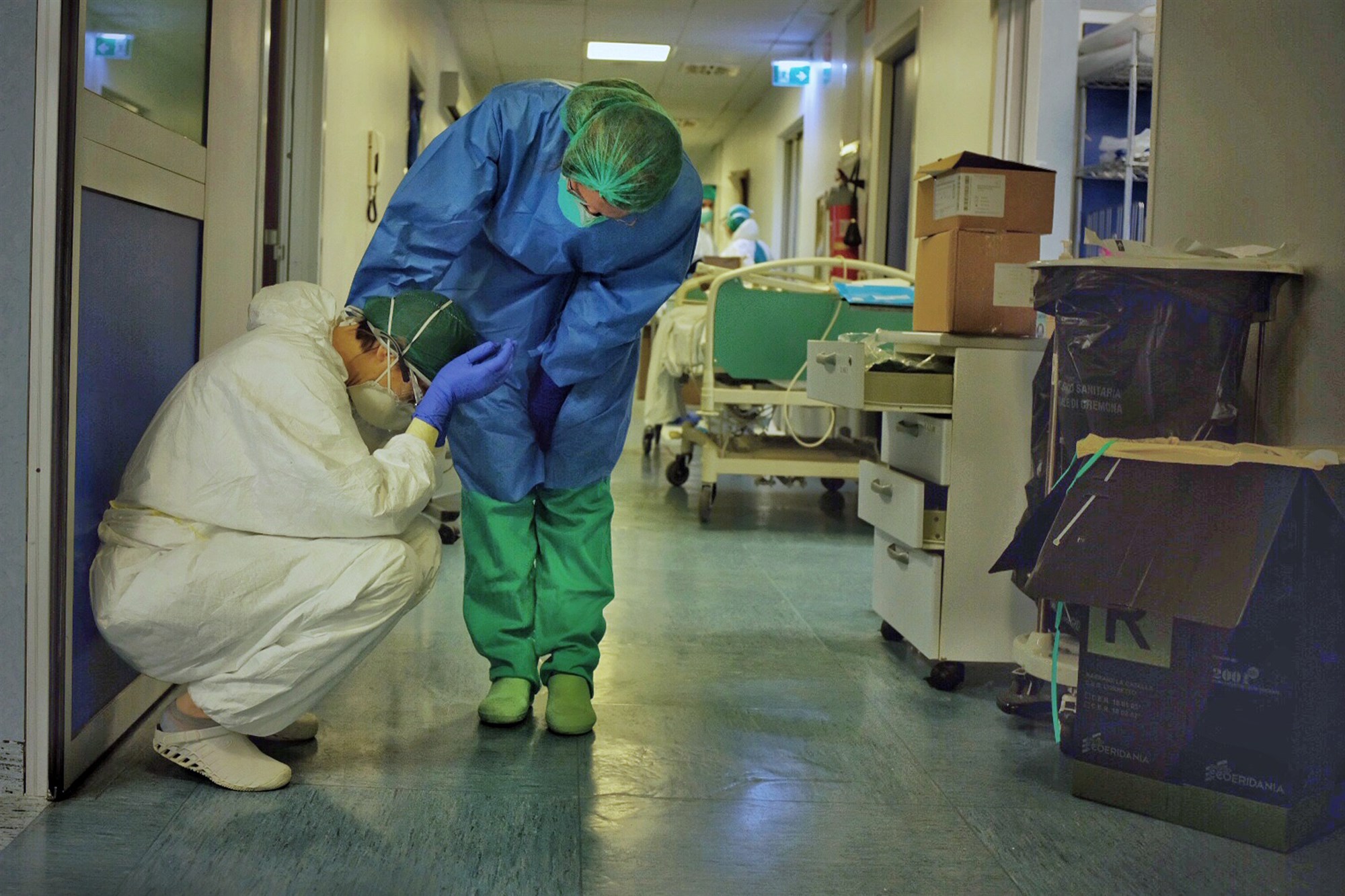Italy, battling to hold back the spread of coronavirus is calling in reinforcements.
Retired doctors are answering a call to return to work. Young, inexperienced doctors are being recruited to shore up the legions of overworked health workers nationwide. The Italian government is welcoming any level of foreign aid, from health personnel from China, Russia and Cuba to equipment from European Union countries.
The surge in calls for reinforcement echoes a desperate trend elsewhere in the Western world. The United Kingdom has put out a call for volunteers to shore up personnel in its National Health service. Both France and the U.K. are employing army medics to treat coronavirus patients. Greece issued a call for volunteers to help combat the coronavirus spread, including doctors, psychologists, medical students and retired scientists.
In Spain, hundreds of volunteers are busy sewing makeshift masks to supply health workers. In the United States, two Navy hospital ships have been sent to New York and Los Angeles to treat non-coronavirus patients in order to ease the overcrowding at hospitals on shore.
Could such a problem of staff arise in Lebanon, where the health sector is already under immense pressure because of the ongoing financial crisis? In a March 24 report, Human Rights Watch warned of both staff and equipment shortages that could hinder efforts to contain coronavirus. “Hospital staff and nurses have raised concerns about the failure of the government and hospitals to adequately staff hospitals and protect staff from infection,” the report said.
Italy’s Civil Protection department is trying to reinforce areas of northern Italy where about 80 percent of the country’s 67,814 cases and 6,157 deaths have occurred. Northern Italian hospitals are clearly overwhelmed.
“Here the scenario is dramatic, we are at saturation,” said Angelo Pan, Director of Infectious Disease Unit in the town of Cremona. “We cannot treat everyone [in emergency care]. We are forced to make choices and I know that we have not even reached the peak of the coronavirus pandemic.”
Officials are also preparing for a possible explosion of cases in the relatively lightly-hit south.
Within 24 hours of putting out the call, the Civil Protection agency received the entire 8,000 applications it requested. Italy is mainly looking for anesthesiologists, but is accepting help from any area.
“The doctors selected will work alongside regional health service staff and volunteers who are already assisting in hospitals treating coronavirus patients,” Angelo Borrelli, who heads the Civil Protection department.
Italy will let this year’s newly graduated medical students begin their careers nine months ahead of schedule and join the fight, Universities Minister Gaetano Manfredi announced last week. Schools will waive mandatory exams normally needed before qualifying as full physicians.
“This means immediately releasing into the national health system the energy of about 10,000 doctors, which is fundamental to dealing with the shortage that our country is suffering,” Manfredi said in a statement.
Given the lack of medical resources, including masks and outfits to protect health workers, it is not clear that putting recruits into service will help.
Take the concerns of Irene Urciuoli, a 29-year-old general surgeon in Florence’s Careggi University Hospital. She is among the young doctors on call. In preparation for a growth in cases, entire wards in her hospital have been cleared and turned into areas for coronavirus treatment.
Yet, Urciuoli is aware that the hospital lacks the necessary equipment for her to do her job. Swabs used to test potential patients for the virus are in drastically short supply, she said. Besides making it hard to identify infected patients, the lack of testing makes health workers vulnerable—they may carry the disease without knowing it and pass it on to others.
Health workers are only tested if they develop a high fever, a chronic cough and have had contact with a positive coronavirus patient, Uriuoli mentioned. “We basically don’t get tested,” she said. “We are only granted leave from work if we have a fever of 37.5 c (99.5 f) or higher.”
Moreover, there are insufficient numbers of masks meant to protect doctors and nurses from the virus. “No one has provided us with the necessary equipment and protection gear,” Urciuoli said.
The masks available are designed only to protect the patients from doctors, for instance, during surgery. They are not meant to defend the doctors from contagion from patients, Uricuoli said.
“They’re surgical masks. They only protect you to a certain extent from the virus. They protect other people from us.”
Some Health workers have resorted to making their own masks; Urciuoli cleans and recycles the same mask she normally uses in the operation room.
Such scarcity can be deadly for doctors and nurses. As of this week, around 33 health workers –making up nearly 10 percent of the total number of deaths, have died after treating infected patients, according to the ministry of health.
Last Thursday, two doctors in the northern town of Como died after testing positive with COVID-19, according to news agency ANSA. Both were pneumologists who had come out of retirement to work.
“I’m starting to get a little scared. Of course, the numbers of cases will be reduced eventually,” Urciuoli said. “But the price we are paying is high.”


